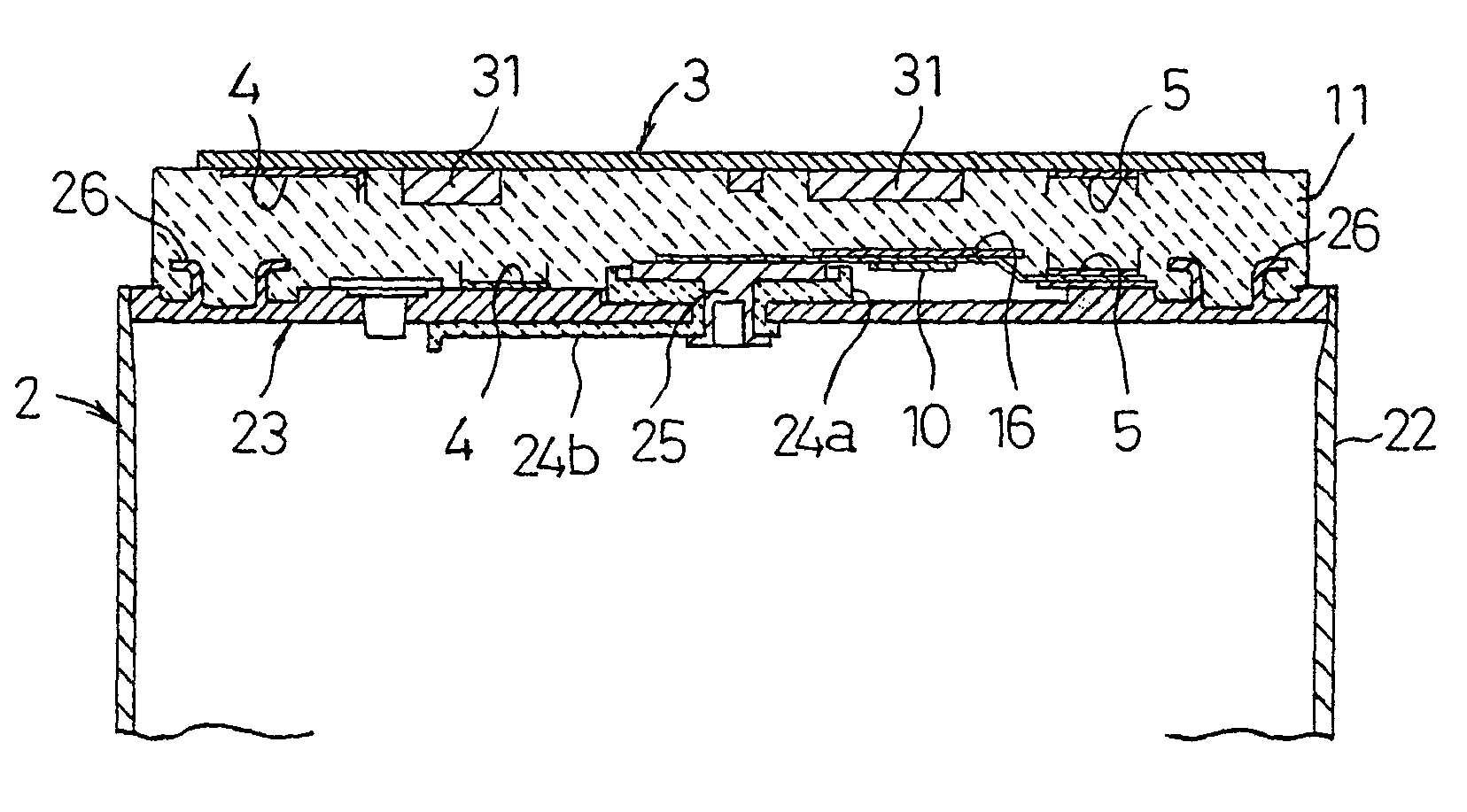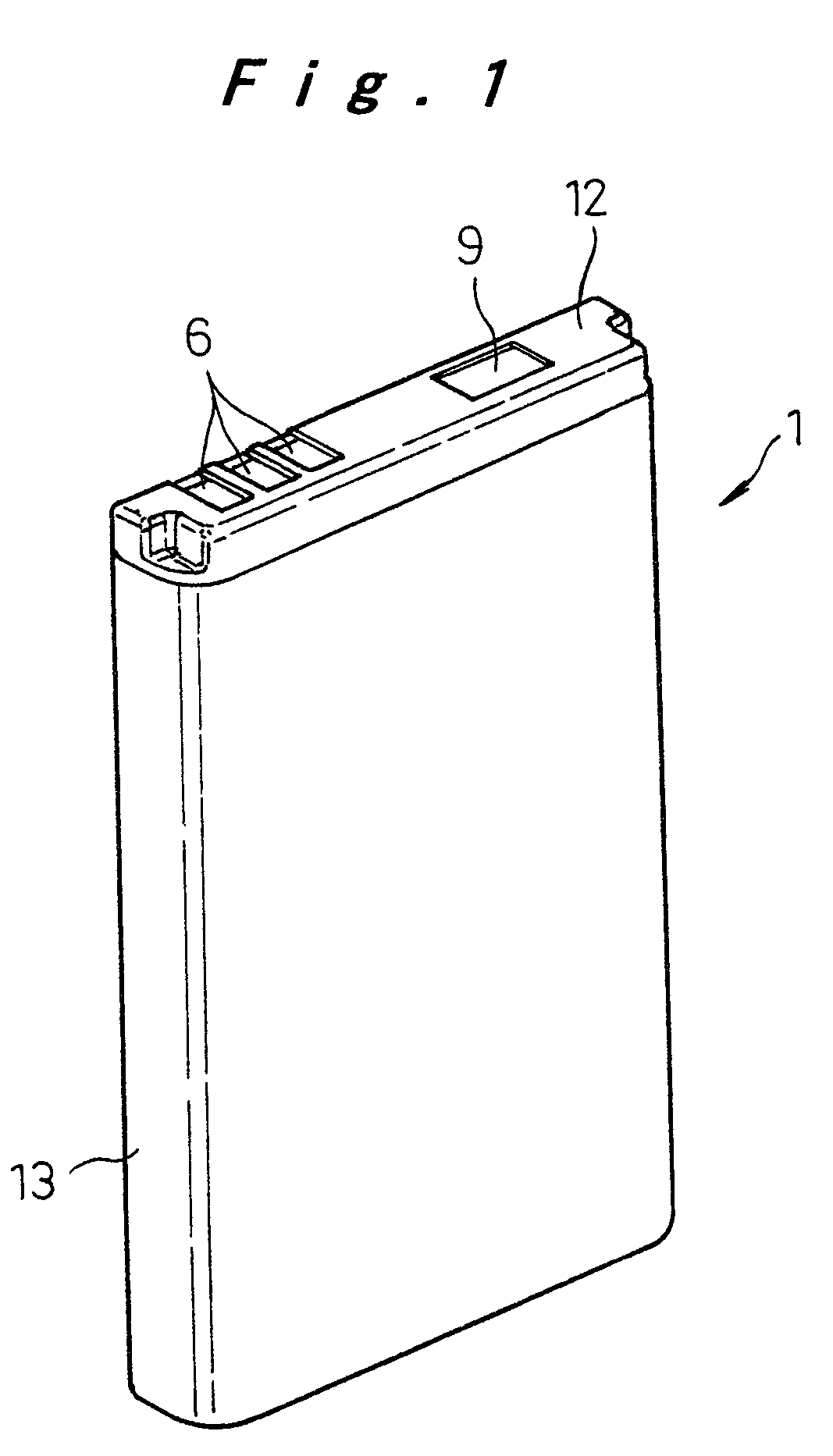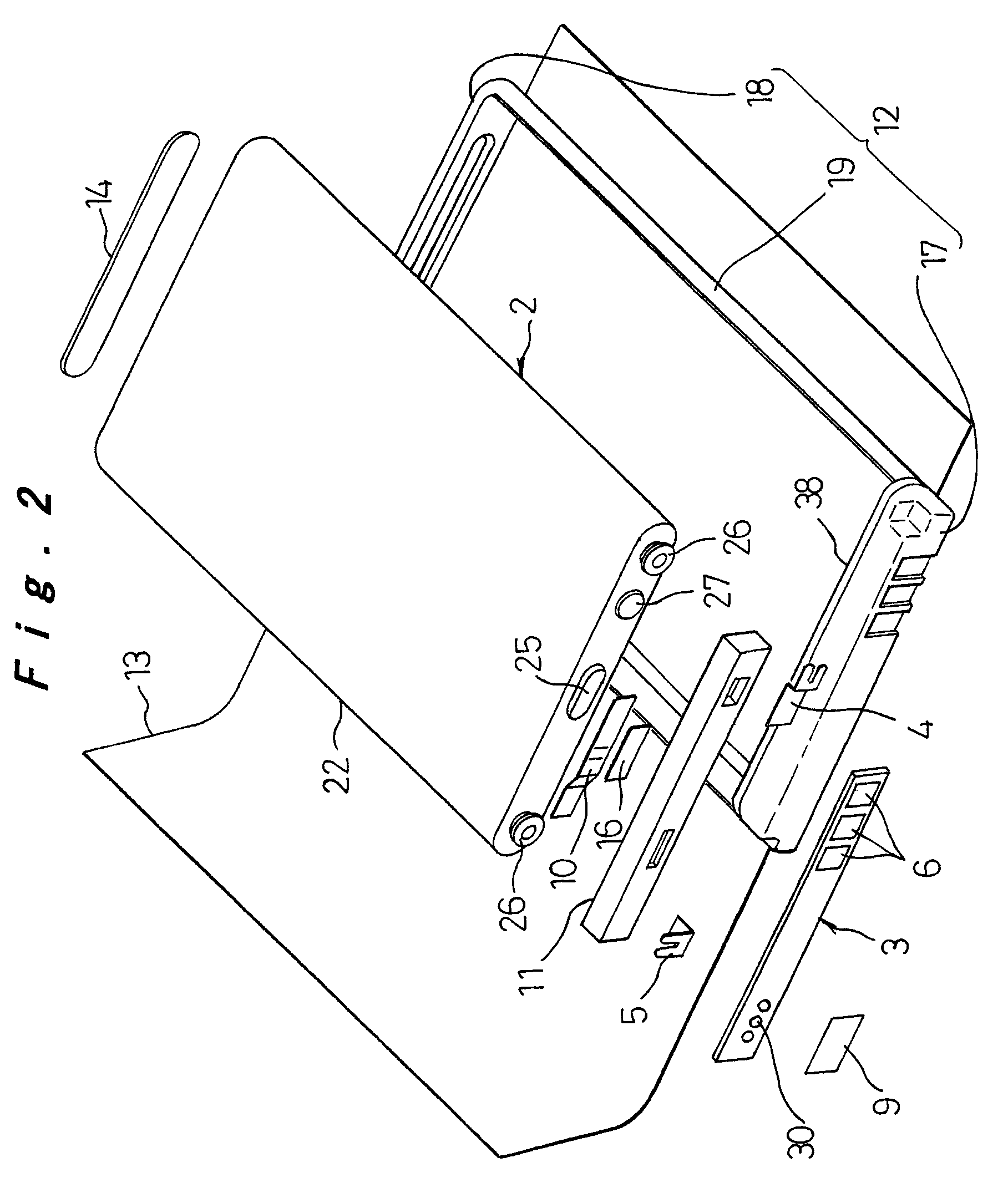Method for manufacturing battery pack
a battery pack and resin molding technology, applied in the field of batteries, can solve the problems of high manufacturing cost of resin molding dies used in pack cases, battery packs using pack cases are not suited to portable electronic equipment that are re-modeled, and fire or explosion of batteries, so as to reduce heat conduction from resin to heat sensitive elements, good heat conductivity, and good heat conductivity
- Summary
- Abstract
- Description
- Claims
- Application Information
AI Technical Summary
Benefits of technology
Problems solved by technology
Method used
Image
Examples
Embodiment Construction
[0032]Preferred embodiments of the present invention will be hereinafter described with reference to the accompanying drawings for an understanding of the invention. It should be understood that the following embodiments of the invention are merely given as examples and should not limit the technical scope of the invention.
[0033]The present embodiment shows one example of a battery pack employing a flat prismatic lithium ion rechargeable battery applied to a mobile phone. Battery packs for mobile phones need to be small, light-weight, and thin, and in addition, they are desired to have a high energy density in accordance with high functionality, a high mechanical strength to withstand impacts caused by a falling accident which is inevitable with portable equipment, a structure that does not allow easy disassembling, and safety features for protecting the rechargeable battery from short circuits, overcharge, and high temperature. The battery pack described below satisfies all these r...
PUM
| Property | Measurement | Unit |
|---|---|---|
| thickness | aaaaa | aaaaa |
| temperature | aaaaa | aaaaa |
| thick | aaaaa | aaaaa |
Abstract
Description
Claims
Application Information
 Login to View More
Login to View More - R&D
- Intellectual Property
- Life Sciences
- Materials
- Tech Scout
- Unparalleled Data Quality
- Higher Quality Content
- 60% Fewer Hallucinations
Browse by: Latest US Patents, China's latest patents, Technical Efficacy Thesaurus, Application Domain, Technology Topic, Popular Technical Reports.
© 2025 PatSnap. All rights reserved.Legal|Privacy policy|Modern Slavery Act Transparency Statement|Sitemap|About US| Contact US: help@patsnap.com



